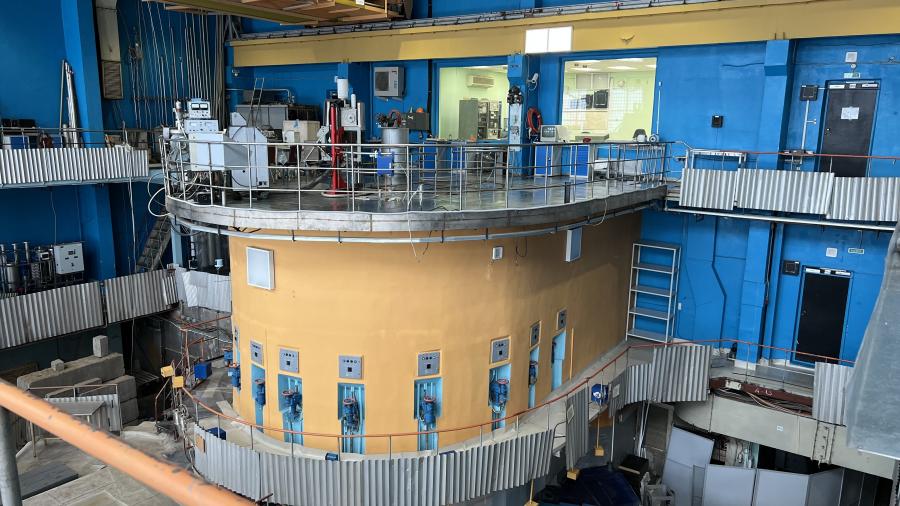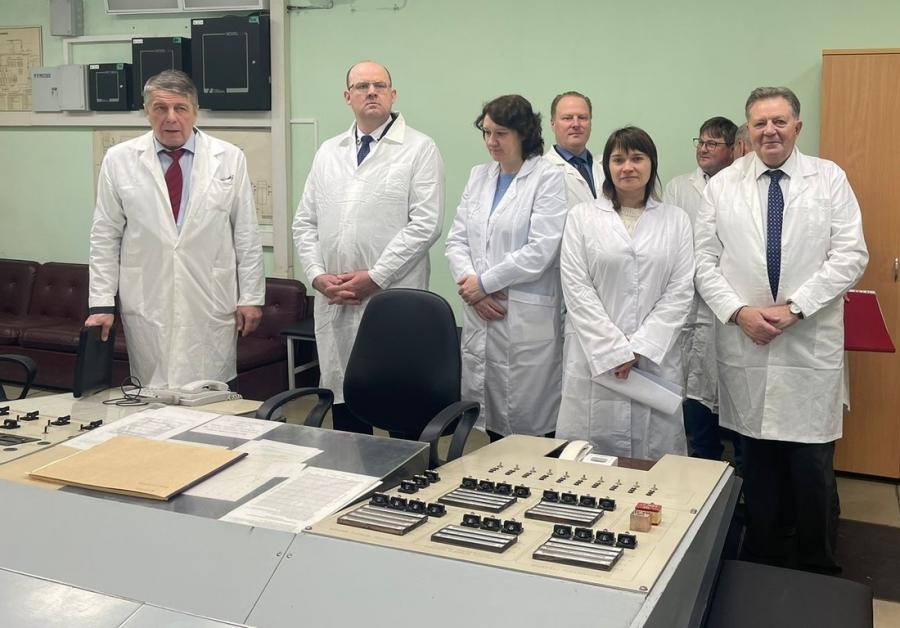The 80th anniversary of our university is marked by the most important event in the life of MEPhI: preparations have begun for the commissioning of the IRT MEPhI research nuclear reactor, which began operation in 1967 and has been in a long shutdown mode for more than 13 years.

In recent years, the IRT MEPhI reactor systems have been maintained in working order, while work was underway to obtain permits to continue the operation of the reactor in full, says Deputy Chief Engineer of the reactor Vladimir Alferov. It should be noted that he has been working at the plant continuously since 1978.
At one time, the reactor was shut down for administrative reasons. In addition, to continue operation, a comprehensive survey of the state of the reactor was required, for which it was not possible to find funds. That is why in 2009 the reactor was switched to a long-term shutdown, and nuclear fuel was moved from the core to a special storage shaft.
In 2016, after the launch of the Federal Target Program "Ensuring Nuclear and Radiation Safety for 2016-2020 and for the period up to 2035", the survey was finally carried out. And at the beginning of 2023, MEPhI enters a new era - the university received a change in the terms of the license from Rostekhnadzor, which makes it possible to start work on bringing IRT MEPhI to its design capacity.
The order to prepare the reactor for launch was signed by Rector Vladimir Shevchenko on March 1. The project will be supervised by vice-rector Nikolai Kargin.

It should be noted that, unlike nuclear power plants, in which the thermal energy released during the fission of uranium-235 nuclei is used to produce electricity, in the IRT MEPhI reactor, the fission reaction is used to generate a neutron flux, which is needed to conduct various experiments in physics and technology.
Of course, the power of the reactor is not so great - only 2.5 MW, a large-scale fundamental research cannot be carried out on such a facility, however, it is possible to prepare experiments at IRT, which then continue on more powerful reactors.
In addition, the very process of controlling a nuclear reactor can also be an object of scientific research. Previously, 4th-5th year students, as well as graduate trainees, were involved in such research. Demonstration lectures were held at the reactor, students performed laboratory and diploma work on it. Therefore, IRT was important both for the educational process and for university science.
Today, the launch of the reactor at MEPhI is eagerly awaited at the Department of Radiation Physics and Safety of Atomic Technologies, the Department of Automation, the Department of Theoretical and Experimental Physics of Nuclear Reactors, as well as in many partner organizations, for example, at the Research and Design Institute of Power Engineering. With the launch of the reactor, it will be possible to test scientific instruments, analyze rocks, and process the latest materials; the use of the device in preclinical studies on neutron-capture therapy of malignant tumors is not ruled out. The reactor will also be used for the retraining of nuclear power specialists.
However, before the launch takes place, there is still a period of testing of all its systems. After that, the reactor will operate at low power - 50 kW. And only after this stage is recognized as successful, the issue of bringing it to full capacity will be decided.
According to Vladimir Alferov, all the systems of the reactor are in working condition, the university specialists do not expect problems with its launch.
We wish good luck to the IRT MEPhI team, as well as to those scientists who are waiting for new experiments!





